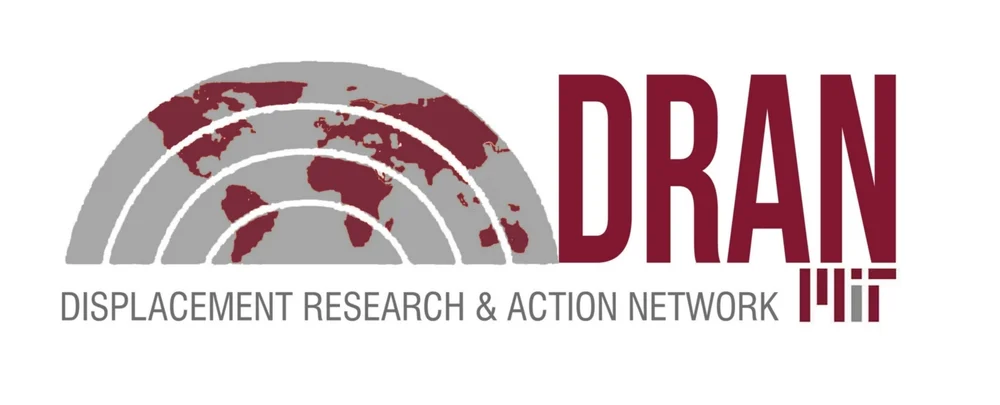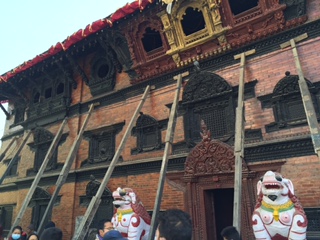Climate Change, Disaster Displacement, and Resettlement
DRAN is increasingly turning its attention to displacement in the context of natural disasters, a trend that will likely increase with the intensification of impacts from climate change and the rise of extreme weather events. International, national, and local governments will have to be responsive to the risk of climate displacement both within and across their borders and begin to put in mechanisms for mitigating and preparing for these risks.
Global Research Network on Climate-Induced Displacement, Resettlement, Adaptation, and Resilience for Cities (CIDRARC)
Beginning in 2024, DRAN is joining a new diverse group of scholars and practitioners from across the globe to design the key functions, themes, activities, and membership of a Global Research Network on Climate-Induced Displacement, Resettlement, Adaptation, and Resilience for Cities (CIDRARC). Through a collaborative grant funded by SSHRC Connections, DRAN will develop a case study in Chennai, India, engage in workshops and knowledge building around global climate displacement, and support in developing this imperative research partnership and broader network at the nexus of climate science, planning, and displacement.
Equitable Resilience in Climate Change: The case of climate-induced displacement in Chennai and Kerala
This project sought to increase an understanding of equitable dimensions of resilience, especially how grassroots communities experience displacement caused by climatic events. The focus in the study was on environment-induced displacement, connected with the 2015 floods in Chennai, and the 2018 floods in Kerala, India. The South Indian states are among the most urbanized in India, and Tamil Nadu, of which Chennai is the capital, is India’s most urbanized. Studying the floods in these areas tells us a lot about how urban planning, climatic conditions and social vulnerability combine to produce inequitable impacts in some of the most challenging conditions in the world. The floods in 2015 and 2018 raised concerns about the lack of environmental and natural resource planning, inadequate urban design, and infrastructure and public health mismanagement. There is also a paucity of data about the lives of displaced populations, such as where they end up, the conditions they face post-displacement, and opportunities that are afforded by way of resettlement, rehabilitation, or restitution. More broadly the project sought to insert a concern about displacement and resettlement into an understanding of equitable resilience. This research was funded by a 2019 Norman B. Leventhal Center for Advanced Urbanism Seed Grant.
resettlement and relief impact assessment (nepal)
In 2015, Nepal was struck by two earthquakes in April and May, which killed nearly 9,000 people, injured 22,000 and displaced nearly 2.3 million people. After more than a year, reconstruction was slow to start moving while risks remained high for vulnerable communities due to another big earthquake in this seismic zone. DRAN members traveled to Nepal in January 2015 to meet with senior members of the government, national institutions such as the Human Rights Commission, leading national and international NGOs and visited sites to assess earthquake damage and the challenges of rebuilding. With the advice of Mohandas Manandhar, DRAN Nepal advisor, DRAN designed a work program to research and document the human impacts of earthquake in selected districts, as well as assess the relevant land governance arrangements including the land use regulations for the Kathmandu Valley. The approach was intended to reduce the social exclusion which lies at the core of the vulnerabilities of those who are affected during these protracted displacement situations.
Source: Takepart.org
Chennai
In November-December 2015, Chennai, one of the largest cities in India, as well as many nearby smaller towns and cities and surrounding rural areas were flooded due to very heavy rainfall and subsequent human decisions. Close to 500 people are estimated to have died and more than 1.5 million displaced. Many of those displaced in Chennai were urban poor living in precarious informal settlements, often along water ways, who were displaced due to government action following the floods, rather than due to the floods themselves. They have been sought to be resettled in faraway locations. DRAN members visited Chennai in January, and then during the summer of 2016, with a view to assess the protracted humanitarian and development challenges raised by the displacement, and the human rights and development consequences of resettlement policies. In collaboration with local NGOs and researchers, DRAN designed a work program to research and document the human impacts of displacement and resettlement, as well as structural issues which may worsen the human impacts of future floods.




